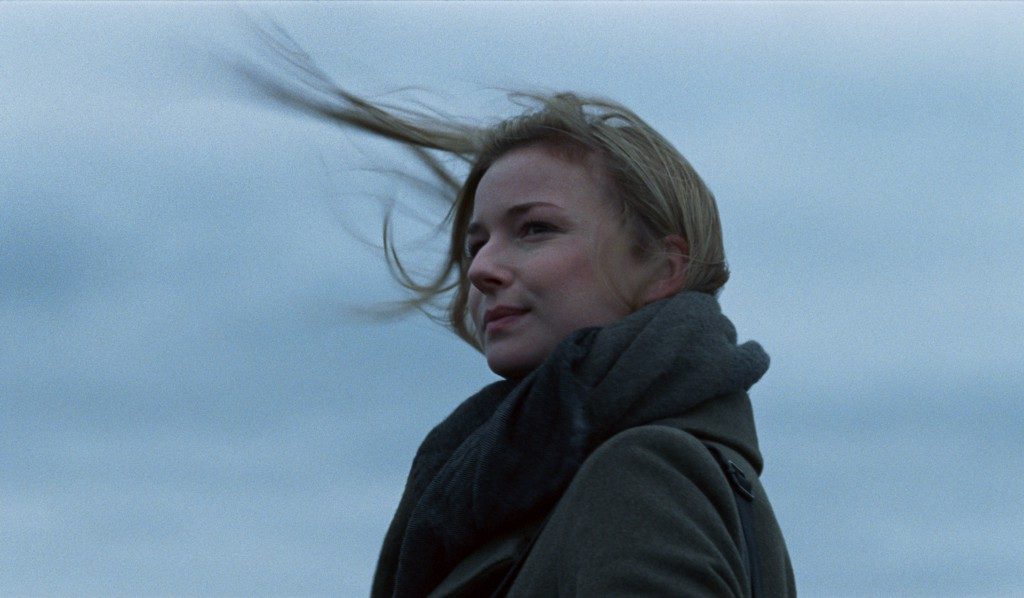Born in Quebec, screenwriter and director Chloé Robichaud lives and works in Montreal. Her first feature film, “Sarah préfère la course,” was selected for the 2013 Cannes Film Festival. Her short film “Chef de meute” was also presented at Cannes, and was nominated for the Palme d’Or Short Film in 2012.
“Boundaries” will premiere at the 2016 Toronto International Film Festival on September 10.
W&H: Describe the film for us in your own words.
CR: “Boundaries” follows the intersecting paths of three women in Besco, a small island facing an economic crisis. Emily Price (Emily VanCamp) is leading the negotiations between Besco’s president Danielle Richard (Macha Grenon) and the Canadian government. Young Félixe Nasser-Villeray (Nathalie Doummar) has just been elected as a federal deputy, and is part of the mission. Dealing with the political conflict surrounding the exploitation of Besco’s natural resources will bring these women to question how they balance work with their personal lives.
W&H: What drew you to this story?
CR: I think the idea imposed itself on me because of my interest in politics and politicians. I will soon be turning thirty, and must become more mature as I position myself more strongly as a woman, citizen, and film director. The idea for the film evolved, just like me, over a development period of three years.
The film concerns my reflections on our [experience] as citizens in a world in constant change. But most of all, it concerns our desire to [emancipate ourselves from] conventions.
W&H: What do you want people to think about when they are leaving the theater?
CR: I hope the audience will have fun in front of the film that is “Boundaries,” because it has been thought as a cinematographic film. And at the same time, I would be pleased if the audience was slightly unsettled by the reflections that the film leaves them with.
W&H: What was the biggest challenge in making the film?
CR: I wanted to film all exterior scenes in Newfoundland, and some of them were shot on the remote island of Fogo. We had to deal with the ever changing weather conditions. It was very windy, sometimes very cold. We sometimes had to adapt our schedule and wait for better conditions.
W&H: How did you get your film funded? Share some insights into how you got the film made.
CR: The film was funded with the help of Quebec and Canada’s funding institutions, like SODEC and Telefilm Canada. We received an overall budget of $4.2 million. Since we needed to film in Newfoundland, the film was also a co-production between both provinces.
W&H: What does it mean for you to have your film play at TIFF?
CR: I’ve been to TIFF a few times, with short films and my first feature, “Sarah Prefers to Run.” I also acted as part of Canada’s top ten jury in 2014. I feel I’m in good hands. TIFF is such a great place to launch a film. I love the Q&As. I love how audiences in Toronto are curious and generous.
W&H: What’s the best and worst advice you’ve received?
CR: The worst was when filmmaker once told me I was too young to make a feature film and that I needed to wait. Age should never be a criterion. The question is “Do you have something relevant to say with your film?”
If the answer is yes, then go for it.
I received great advice from actress and filmmaker Micheline Lanctot. She taught me at Concordia University for a year. Her teachings gave me a lot of confidence when directing actors.
W&H: What advice do you have for other female directors?
CR: My advice is good for anyone who wants to pursue a career in cinema. Just stay focused on what you want, and work hard. You need to think ahead, and be ready to dedicate an important part of yourself to your dreams.
W&H: Name your favorite woman-directed film and why.
CR: That’s a hard one, since there are some many great movies from female directors. One of my all-time favorites is “Lost in Translation” by Sofia Coppola. I love how she makes use of silence. Life is all about being there, in the moment, and so is the film. The cinematography is amazingly beautiful and humble.







